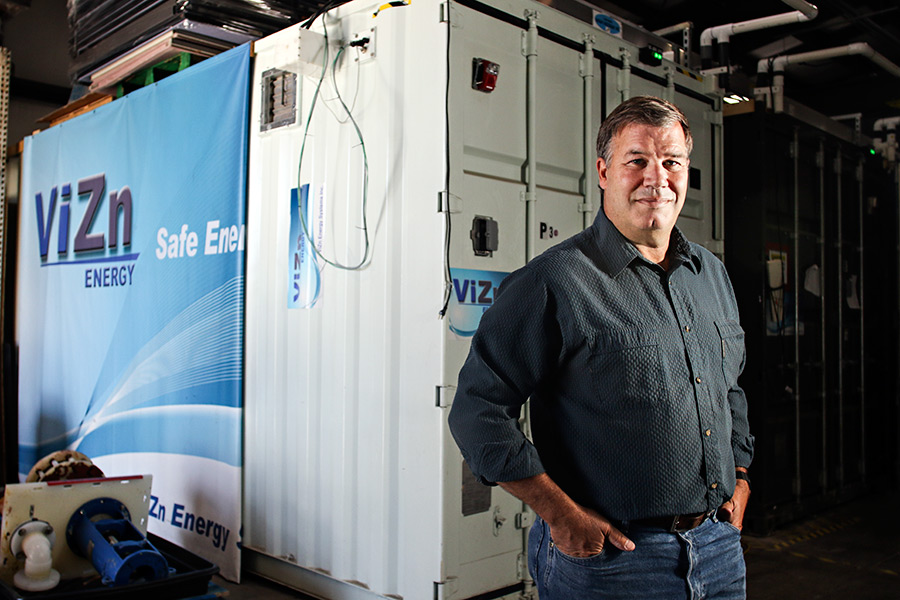ViZn Energy Systems Secures Funding, Restarts Operations
After shutdown and furlough, battery-technology firm has more than 40 employees back working at its Columbia Falls facility and a new CEO
By Myers Reece
After shutting down operations and furloughing employees in March, ViZn Energy Systems is back in operation along U.S. Highway 2 south of Columbia Falls.
The large-scale energy storage company, which develops highly complex zinc-based redox flow battery technology, began welcoming employees back in late May but held off on a public announcement until financial documents were finalized.
Company officials say the reboot comes after a successful round of financing, resulting in $15 million of new funding, led by a prominent energy industry private-equity fund and several of the firm’s longstanding investors. John Lowell, the former chief operations officer, has assumed the role of president and CEO, taking over for Steve Bonner. Bonner is no longer with the company.
“It’s pretty exciting, pretty satisfying that the company’s back up and running on a good, productive course,” Lowell said in a June 18 interview.
More than 40 employees are working at the Columbia Falls facility, which is about 80 percent of its pre-furlough Montana workforce and 65 percent of its prior total global workforce, Lowell said. The Columbia Falls location is the firm’s primary research and development facility and has always employed the majority of employees.
A number of employees moved on to other jobs during the furlough, but the bulk of the core team, including key engineers, is intact, Lowell said. ViZn will be hiring to fill other positions.
ViZn is focusing its attention and resources on technology development and testing, rather than marketing and sales. As such, sales and marketing positions in Europe and elsewhere in the country haven’t been filled.
The company says the commercial organization will likely expand again in 2019. In the meantime, sales and marketing will be conducted more through strategic partners “rather than trying to do all that ourselves,” Lowell said.
“As the technology is validated, we will invest in expanding the commercial efforts and super-charging existing partnerships in emerging storage markets like China, India and Australia,” Lowell said.
Lowell, who has been with the company six years, said ViZn was working toward finalizing product testing and verification before funds ran out, leading to the temporary shutdown to seek more funding. Now the goal is to have testing and verification done in six months, at which point ViZn will be ready to “implement significant projects” in addition to its current smaller-scale projects.
“Our issues have been financial in nature, not technical in nature,” Lowell said.
The company, founded in 2009 as Zinc Air, touts its long-duration zinc-redox flow battery technology as “highly versatile,” capable of utility, commercial, industrial and microgrid applications worldwide.
While lithium batteries continue to dominate the energy storage industry, ViZn officials say their technology is a superior alternative not only because of its scalable versatility but also its safety, reliability, performance and cost-effectiveness. The batteries provide “significantly more usable output than competitive batteries” over the course of 20 years.
“The industry recognizes that and is waiting for us to prove it,” Lowell said.
Lowell said ViZn is ready to provide that proof and move forward with its “very optimistic growth plans.”
“We are the only really good cost-effective alternative to lithium in this space and the industry has recognized this,” Lowell said. “It just takes a fair amount of funding. Now that we have the funding … it’s a big step forward.”